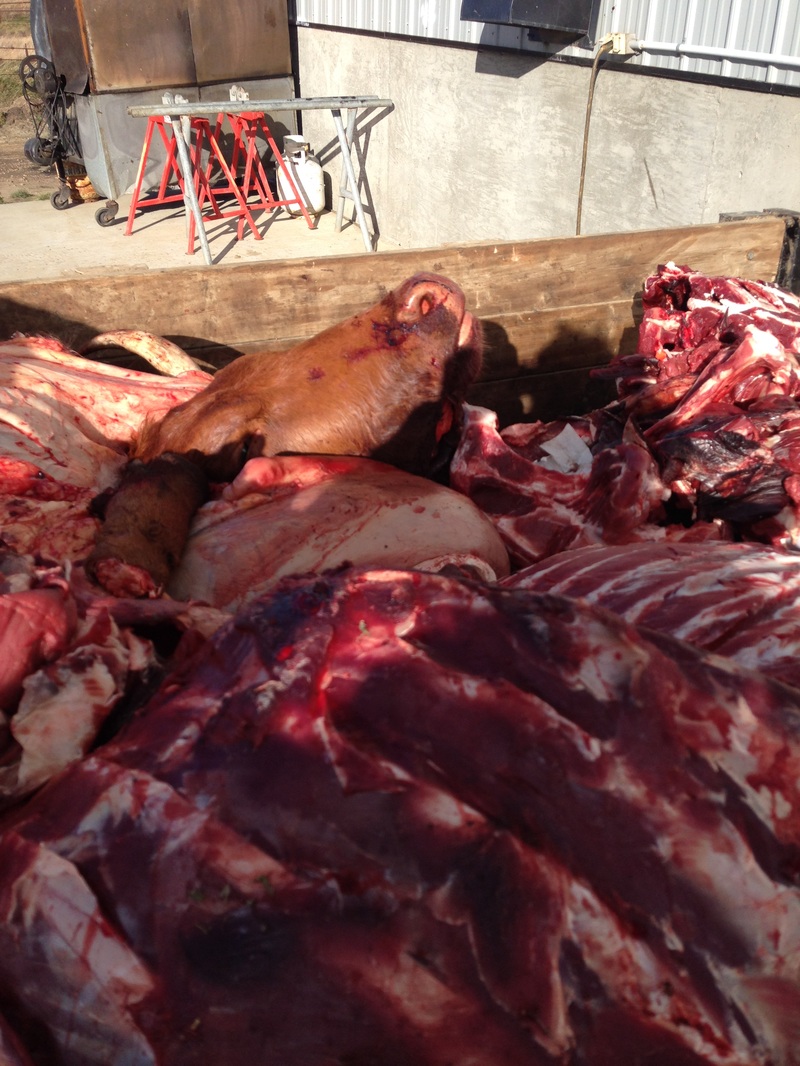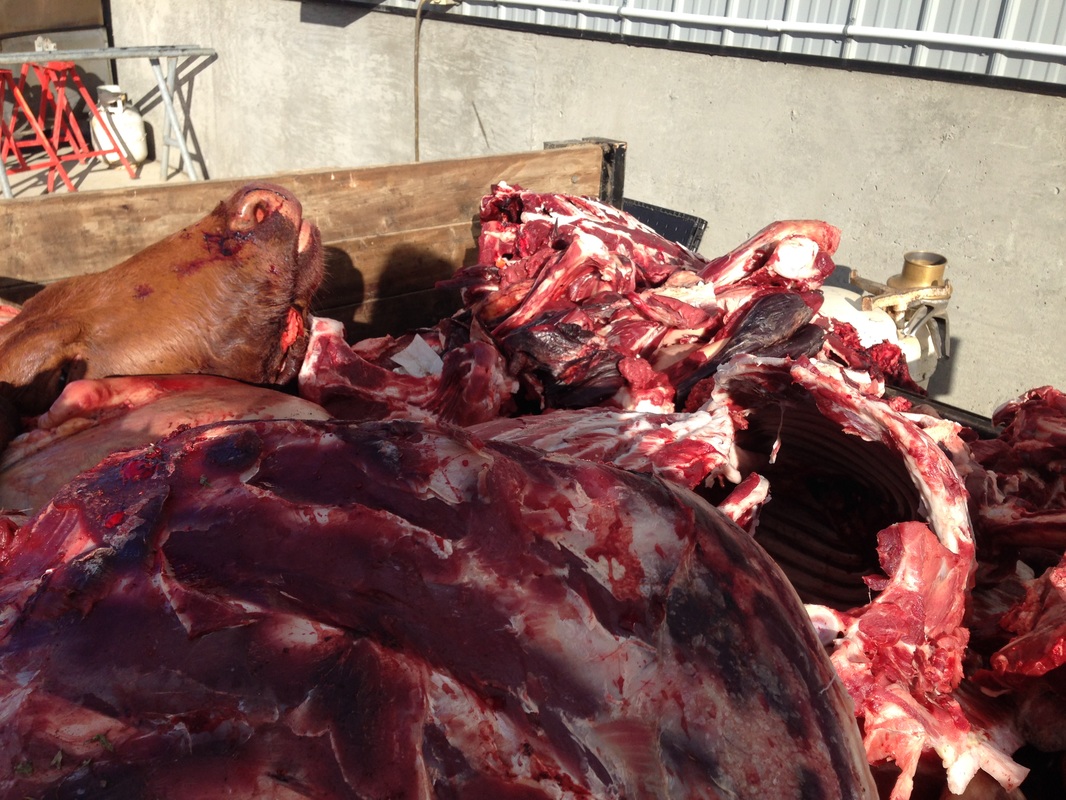I have to drive about a half hour each way to pick up the meat scraps. I get them from the Hutterites near Glendon. Now here is something funny. They are opportunistic people. The scraps are loaded into a wagon or the bucket of the huge tractor and are taken to the burn pit where they are burned and buried. The meat shop is a custom cut shop, so they do wild game frequently. The dogs far prefer wild game, deer, moose, elk and bear to cows any day. They love bison. I do too. Bison is my favourite red meat, but moose is a close second. I don't get the moose though; the dogs do.
I used to order the scraps and the girls who work in the meat shop would fill small boxes with scraps. They were very bad at doing so and some stuffed the boxes with more fat and bones than meat. Then recently they said they were too busy and I could buy a barrel of scraps for 10 dollars instead of a small box for ten dollars. I thought that was great, but the barrel had lots of things in it, plus huge bones, which I did not want to bring home. So, I had to pick through the barrel. Now they just dump the scraps and offal, skin, heads and hooves, in a trailer and I have to pick through that. They do not supply bags or boxes anymore either, but they still like to charge for what they would normally throw away. Picking through the scraps is gross and not something I enjoy or want to do, but I will for the sake of getting good food for the dogs.
Vermillion packers is about the same distance as the colony, but to the south instead of the north and they said I could have scraps for free. I have to make arrangements to go there and see how that will work. Perhaps I will get them there instead if it is just picking through the offal and loading what I want, especially for free.
Feeding the dogs costs between 3 and 4 hundred dollars a month, or did. Now that I pick my own scraps, it is much much cheaper and if I go to Vermillion, it will only cost gas. The dry dog food I used to get was soy and corn free, but forty dollars a 50 pound bag. Then the company changed their look and made it forty dollars for a forty pound bag. That is a dollar a pound for cereal. In the winter I will boil some barley with meat and bones and feed that to the dogs to help keep them warm. Right now I have been buying cheap dog food. The magpies eat a lot of the dog food, but not the dogs. I think I have finally invented a way to keep the magpies out of the food. That is to feed the dogs in 5 gallon buckets. The birds won't fly into the bucket!
The 4 cats still around here eat some dog food and meat as well. I would like to catch the two tortoise females and the new cat, grey and white, I think is female too. They do not eat that much dog food to worry about at the moment.
The only other things I have to do for the dogs is treat them for fleas and tick in the summer and worm them. Because the sheep carry a tapeworm that requires a dog host, the dogs also are wormed for c. ovis, which is the dog/sheep tapeworm. The dogs need to be wormed about every three months.
I try to brush out their winter coats too, but that is only once a year at the end of summer when they shed and the new winter coat comes in. They need fresh straw in the dog houses and a good wind barrier around the dog houses. Last year I made dog city. I put straw bales all around the dog houses and a roof over top, but they hardly sleep in the houses and it really was a waste of time. If it is below 30, I bring them into the house in the porch. The girls don't come in. They sleep in barrels on their sides, just big enough for them to crawl in. The barrels are covered with straw and then snow, so they are well insulated. For some reason, the male dogs do not seem to seek much shelter. Mike and Joe have houses with the sheep, but mostly sleep with the sheep wherever they are and the lambs sleep in their houses.
The dogs do need water, however; in winter they eat snow too. I think it is too cold for them to eat snow, so I bring them warm water at least once a day. Sometimes their meat is frozen solid in winter and I feel sorry for them and cook it and feed it to them warm. They work hard to keep the farm safe and protect everything with their lives. The least I can do for them is give them warm food in winter.
I love my dogs. If picking through a wagon of disgusting animal parts is what I have to do ,I do it. If cooking supper for them is just one little thing I can do for them, I do that too. And in return, I have a pack of the best dogs one could ask for. Woof, woof!



 RSS Feed
RSS Feed